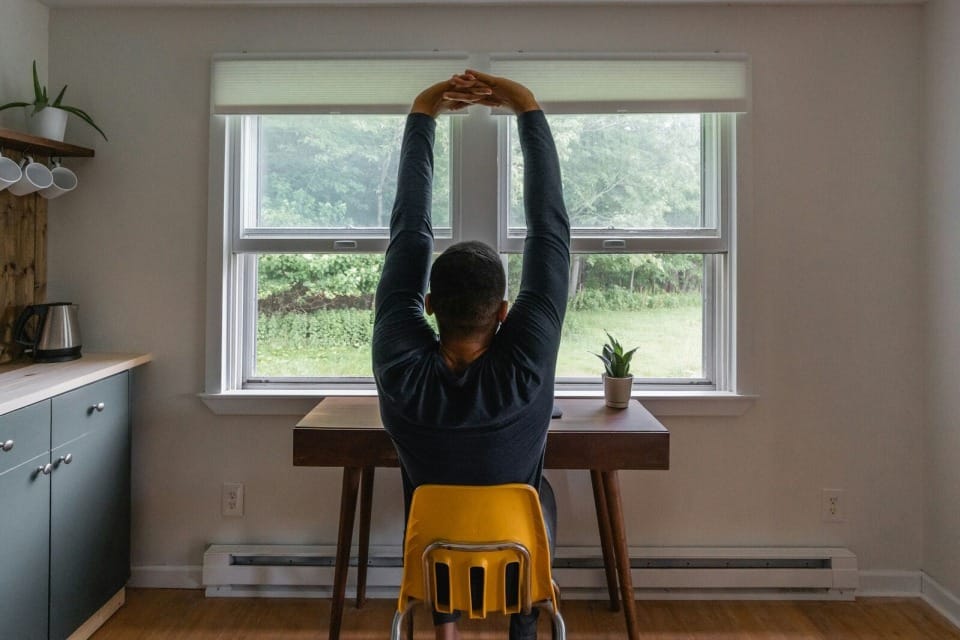Everybody has bad days where they are worn out, agitated, and depressed. Although it’s common to experience grief in response to unpleasant life events, loss, or changes, these feelings can occasionally persist for a while if unresolved and make it challenging for you to get through each day. You can’t just will yourself to “snap out of it” when you’re depressed.
What distinguishes sadness from being depressed?

Many stressful and traumatic occurrences might bring you down, whether you’ve lost a loved one, moved to a new location, or missed a career change. The difference between sorrow and depression is that the former normally passes quickly, but the latter is a mood disorder that can occur suddenly and linger for two weeks or longer. McKinney Christian Counseling provides faith-based support for those struggling with depression.
Your life is affected by depression in practically every way; it interferes with your thoughts, feelings, and routine tasks like sleeping, working, and socializing. Typical signs of depression include:
- feelings of emptiness
- difficulty concentrating, low energy, trouble sleeping, or excessive sleep,
- alterations in weight or appetite
- a sense of helplessness
- a decline in interest in hobbies or activities
- easy irritation or restlessness
- aches and pains that don’t have a clear physical origin
- suicidal or death-related ideas
These signs and symptoms must be present for at least two weeks, approximately twenty-four hours a day, to be considered depressive.
Why is overcoming depression so challenging?
Depression saps your motivation, hope, and vitality, making it challenging to perform the actions that will improve your mood. Sometimes it might be difficult or stressful to even think about doing the things you should do to feel better, like exercising or hanging out with friends.
The dilemma of depression recovery is as follows: The most difficult things to undertake are also the things that help the most. However, there is a significant distinction between something difficult and something impossible. Even if your depression is severe and obstinately persistent, you do have more control than you may know.
Recovery from depression is neither quick nor easy. Starting small and expanding from there is the key. Even though you might not have much energy, if you use all of your reserves, you should be able to do things like go for a walk around the block or pick up the phone to call a loved one.
 The hardest step is always the first one. But there are things you can do right now, like taking a stroll or getting up and dancing to your favorite tunes. And it can significantly improve your mood and energy for several hours – long enough to implement a second recovery step, like making a meal that will make you feel better or making plans to see an old friend.
The hardest step is always the first one. But there are things you can do right now, like taking a stroll or getting up and dancing to your favorite tunes. And it can significantly improve your mood and energy for several hours – long enough to implement a second recovery step, like making a meal that will make you feel better or making plans to see an old friend.
The following modest but effective methods should help you gradually lift the heavy depression-induced cloud and experience happier, healthier, and more hopeful feelings once more.
Why do people get depressed?
Although significant life events can have an impact on some people’s despair, depression can strike anyone at any time, for no apparent reason. In reality, depression is one of the most prevalent mood disorders, affecting 8.7% of women and 5.3% of men annually. According to research, depression may be caused by a combination of genetic, biological, environmental, and psychological factors.
The severity of depression can range from mild to severe, but even mild cases need to be treated seriously. Although depression cannot be “snapped out of” or treated like a “poor mood,” it is fortunately quite curable.
How to seek assistance when you are depressed.
Seek out assistance from those who you feel safe and cared for. You just need a good listener – someone who will pay close attention and compassionately hear you out without getting sidetracked or passing judgment – not someone who can repair you.
Face time should be prioritized. While texting, social media, and phone conversations are all excellent ways to remain in touch, face-to-face interaction with loved ones cannot be replaced. Talking to someone face-to-face about how you’re feeling can be a very effective strategy to both treat and prevent depression.
Even if you don’t feel like it, make an effort to stay involved in social events. Being alone can often feel more comfortable when you’re depressed, but being among other people will make you feel better.
 Look for methods to assist others. While receiving assistance is good, research demonstrates that giving help to others improves your mood more. Find ways to assist others, both big and small, by volunteering, lending a sympathetic ear to a friend, or doing something kind for someone.
Look for methods to assist others. While receiving assistance is good, research demonstrates that giving help to others improves your mood more. Find ways to assist others, both big and small, by volunteering, lending a sympathetic ear to a friend, or doing something kind for someone.
Look after a pet. Pets can bring happiness and companionship into your life and make you feel less lonely, even if nothing can ever fully replace a human relationship. Additionally, taking care of a pet can help you feel less isolated and wanted, both of which are potent antidepressants.
Join a depression support group. Being around other people who are coping with depression can significantly help to lessen your sense of loneliness. Additionally, you can support one another, discuss your experiences, and give and receive advice on how to survive.
Ten ideas for staying in touch when you are depressed.
- Discuss your feelings with one person.
- Donate your time to help others.
- Take a friend out for lunch or coffee.
- Have a loved one call you frequently.
- Bring someone along when you go to the cinema, a concert, or a small gathering.
- Email or call a former acquaintance.
- Take an exercise partner with you on a walk.
- Plan a regular dinner outing.
- Take a class or join a group to meet new people.
- Trust a priest, professor, or athletic coach.
Do the things you enjoy (or used to).
You can push yourself to accomplish things even when you don’t feel like it, even though you can’t make yourself have fun or feel pleasure. Once you’re out in the world, you might be amazed at how much better you feel. Even if your sadness doesn’t go away right away, scheduling enjoyable activities will help you feel happier and more energized over time.
Pick up a past interest or favorite sport. Use writing, art, or music as a creative outlet. Go out with your friends. Visit a museum, the mountains, or the ballpark throughout the day.
Bolster your health.
Sleep for eight hours if possible. Sleep issues are a common component of depression; whether you sleep too much or too little, your mood suffers. Learn sound sleeping practices to improve your sleep schedule.

Remain stress-free. Stress not only exacerbates and prolongs depression, but it also can start it. Find strategies to reduce the strain and restore control by identifying all the things in your life that are stressing you out, such as a work overload, financial difficulties, or unhealthy relationships.
Develop your relaxing skills. A regular relaxation routine helps lessen stress, ease depressive symptoms, and increase emotions of happiness and well-being. Consider practicing yoga, progressive muscular relaxation, deep breathing, or meditation.
To combat sadness, create a “health toolkit.”
Make a list of activities you can do to improve your mood right away. The more “tools” you have to combat depression, the better. Even if you feel fantastic, try putting a few of these suggestions into practice every day.
- Go outside and relax.
- Make a list of your positive attributes.
- Watch a hilarious movie or TV show or read a nice book.
- Take a hot, lengthy bath.
- Attend to a few little things.
- Have fun with a pet.
- Talk to your loved ones face-to-face.
- Play some music.
- Make a spontaneous move.
Conclusion
You can’t suddenly “break out of it” when you’re depressed. On bad days, everyone experiences fatigue, irritability, and sadness. It’s natural to feel down after experiencing a loss or major life change, but if you don’t deal with your melancholy, it can linger and get in the way of your day-to-day existence. If you need counseling for depression, contact our offices and contact a therapist at McKinney Christian Counseling.
“Tree Branches”, Courtesy of Kevin Wang, Unsplash.com, CC0 License; “Coffee in the Rain”, Courtesy of Getty Images, Unsplash+ License; “Bike Ride”, Courtesy of Toa Heftibah, Unsplash+ License; “Dirt Road”, Courtesy of 30daysreplay Social Media Marketing, Unsplash.com, CC0 License
- Kate Motaung: Curator
Kate Motaung is the Senior Writer, Editor, and Content Manager for a multi-state company. She is the author of several books including Letters to Grief, 101 Prayers for Comfort in Difficult Times, and A Place to Land: A Story of Longing and Belonging...
DISCLAIMER: THIS ARTICLE DOES NOT PROVIDE MEDICAL ADVICE
Articles are intended for informational purposes only and do not constitute medical advice; the content is not intended to be a substitute for professional medical advice, diagnosis, or treatment. All opinions expressed by authors and quoted sources are their own and do not necessarily reflect the opinions of the editors, publishers or editorial boards of Stone Oak Christian Counseling. This website does not recommend or endorse any specific tests, physicians, products, procedures, opinions, or other information that may be mentioned on the Site. Reliance on any information provided by this website is solely at your own risk.





